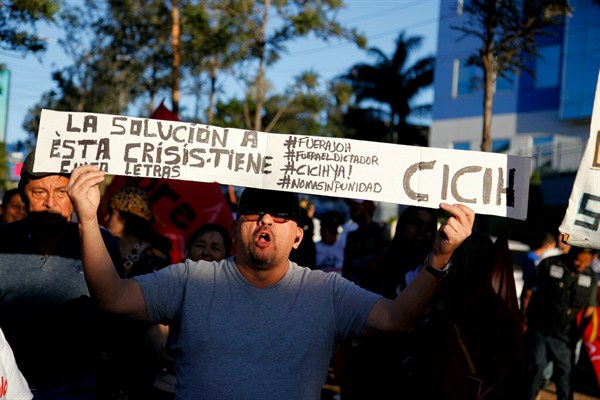On Friday, Luiz Antonio Guimaraes, a Brazilian prosecutor who was Sao Paolo’s attorney general from 1996 to 2004, was sworn in as the head of the Mission Against Corruption and Impunity in Honduras, known as MACCIH. Guimaraes’ predecessor, the Peruvian Juan Jimenez, resigned in February, citing obstruction by Honduran officials and a lack of support by the Organization of American States, which sponsors the mission. The swearing-in came days after Honduras’ legislature re-elected Attorney General Oscar Chinchilla to continue in that key post, and amid a massive corruption scandal known as the Pandora Case that has implicated hundreds of current and former legislators. In an email interview, Eric Olson, deputy director of the Latin American Program at the Woodrow Wilson Center, discusses MACCIH’s creation and track record, and the obstacles facing anti-corruption efforts in Honduras.
World Politics Review: What factors led to the creation of MACCIH, and what were some of the initial concerns regarding the mission’s ability to effectively pursue anti-corruption cases in Honduras?
Eric Olson: The creation of MACCIH was the result of multiple factors, but primarily due to growing public demand for an end to—and accountability for—corruption. A shocking and cruel corruption scandal within the country’s Social Security Institute, or IHSS, which functions like a public health system, unfolded prior to and during the 2013 election that first brought President Juan Orlando Hernandez to power. Several hundred million dollars were allegedly stolen from the IHSS, resulting in a scarcity of drugs and basic medical supplies and equipment that contributed to the untimely deaths of dozens of patients. When it was later discovered that some of this stolen money had been funneled to Hernandez’s campaign, it sparked indignant and spontaneous public protests demanding accountability.

